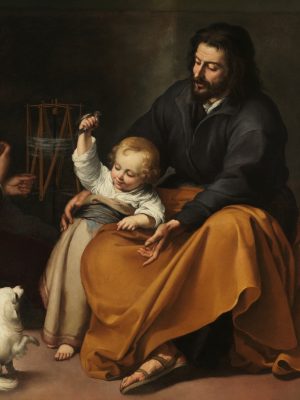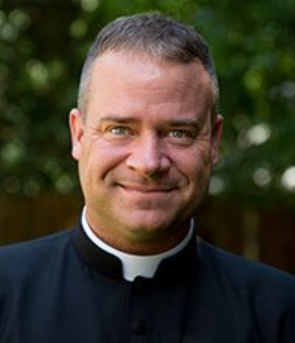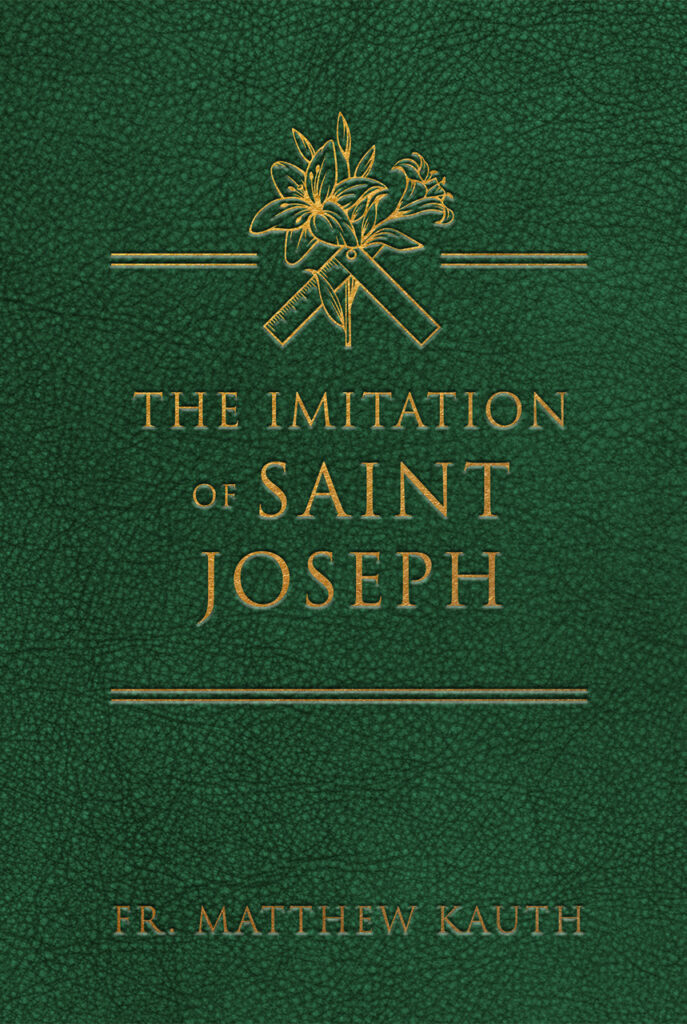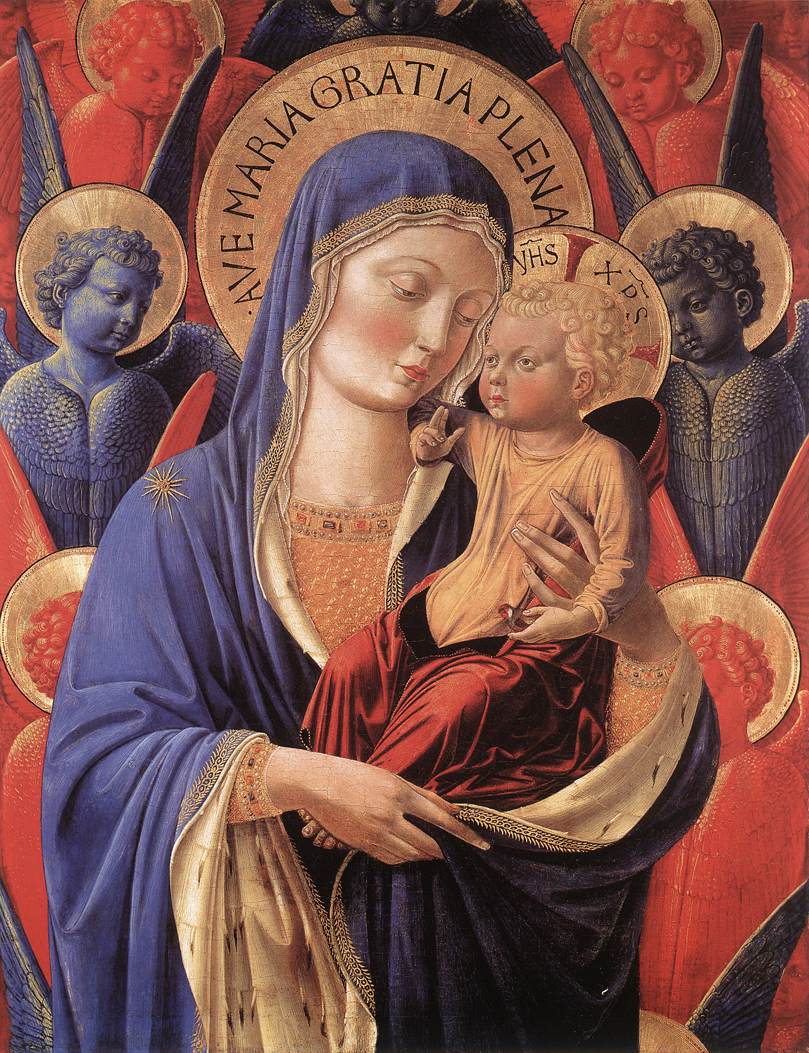The Imitation of Saint Joseph illuminates the foster father of Christ, the most chaste spouse of Mary, and our spiritual father and intercessor. With stirring prose and philosophy, Fr. Matthew Kauth describes the life of Saint Joseph so that we may better imitate his holiness.
In a mystical sense, we can say that the fatherhood of Joseph is initially “reduced” to naming the child. But such a reduction is in turn more of a likeness to God the Father than natural generation. The Word issues forth from the Father as spoken. His is a generation of utter purity. Joseph is the instrument through which the child’s name is given.
While we have no words of Joseph in all of Scripture, we know one thing he said: Jesus. His name is Jesus. Joseph is not perfectly silent. He speaks the name “Yahweh saves.”
Through Mary does the child receive a human nature, through Joseph his human name. The Word is spoken to Mary and she conceives. The word is spoken to Joseph and he breathes that name forth in utterance.
In some sense, this is also like the first of Joseph’s fathers and our father: Adam. Adam was charged with naming things in creation even as God brought them forth. This initial likeness to Adam raises a question. Is the genealogy also suggesting something more? Are we to consider that Joseph, the just man, is the perfection of the fathers that came before him? Can we look to them and see in their characters an idea both of what Joseph would emulate and that which he would perfect?
Joseph is called by tradition “the light of the patriarchs.” He turned to them for light, and yet he was the light that manifested their inadequacy. He searched the Scriptures and found in them mentors to imitate. They would look upon him one day and see their own fulfillment.
What did Joseph see when he looked at the first man? Jesus was to take the appellation “the new Adam,” and yet it was Joseph who wed the new Eve. With her, the world was again young and virginal. There was something new under the sun. Seeing her was like seeing creation.
The Lord God created the animals and brought them to the man to see what he would call them. Yet none of them proved to be a suitable helpmate for the man. While we share animality, there is an infinite bridge of rationality that cannot be crossed. They cannot know what he knows, love what he loves. They prove unsuitable. His knowing and loving return to him. He looks at the animals, but there is no reciprocation. There is no person to know nor by whom to be received. But this is a mere warm-up in the hierarchy of being.
The Lord casts a deep sleep on the man. This sleep is inactivity. It is a death of his faculties of knowing and loving. What is about to be worked is not done by him. It is done by God. God wounds him in his sleep. He robs him of his own flesh and builds from it another who is the man’s compliment. All this was in figure of the one who would volitionally give His life, poured out from His side, to His bride, the Church. But for now, the taking of a rib is like a bloody path for the man to follow. The man follows the trail of his own body. The woman is the locus of the man’s sacrifice, made not by him but by God. God sacrificed the man for her and now the man must do so by knowledge and by love.
When the woman is brought to the man, he breaks his original silence. Not once has Adam spoken except to name, and we have not a hint of his choices. He speaks: “At last!”
We hear in his words waiting, longing, searching, joy. Such simple words. Would this not have resonated in the heart of Joseph when he found Mary, the new Eve? Upon whom was he to bestow his life? Adam worked. It was not a punishment arising from the Fall. He was to cultivate what God had created. But for whom would he work? Seeing her and receiving the command to be fruitful gave meaning to his work. “This is why you cultivate and guard.”
But Adam does not guard. He falls in an ignominious fashion. The lidless-eyed serpent slithered upon the original woman. Coiling with questions around her heart, instilling fear and doubt as to the goodness of law and hence of the lawgiver, he squeezed. She broke faith. She grasped. And the original man said nothing to hinder her. The text tells us he was with her. And he said nothing. “And she also gave some to her husband, and he ate” (Gn 3:6).
Fear is the immediate result. Adam hides from God after the fall from grace. He was naked and he felt shame. There was for the first time in him an experience of vulnerability. Shame is a protective quality that attempts to protect us from being used or derided. Shame seeks to cover so as to protect.
Fear. Joseph was also afraid. Was it the same fear? To be sure, it was not. Yet all fear hinges upon the perceived loss of some good. Adam was ontologically afraid. His being had changed with the loss of original justice. He was no longer clothed with divine favor and integrity.
Joseph, on the other hand, was afraid to take Mary as his wife.
Why? Why the wrestling in the dark hours of the night? Mary was the new Eve, in all purity and beauty. How could Joseph not be afraid? How does one approach something more holy than the ark which caused the death of Uzzah?
All of us live under the shadow of death. We all live with vulnerability. We each fear such punishment and the one from whom it comes. Joseph was a just man. While righteous, there was a chasm between him and the woman. He was on this side of original sin, she on the other. Couple this with the reality of the child growing in her womb and you have something more than the ark.
What will you do? Will you choose not to expose her to shame? Is there not a possible double entendre about not wanting to “expose her to shame?” It does not seem to be the intention of Matthew to suggest this, but that does not mean we cannot see it. There must have been some part of you when faced with this radiance and mystery that caused you to want to recede. You have shame because you are fallen.
“Do not be afraid to take Mary your wife.” You obeyed.
ooo
This article is taken from a chapter in Imitation of Saint Joseph by Fr. Matthew Kauth which is available from TAN Books.









